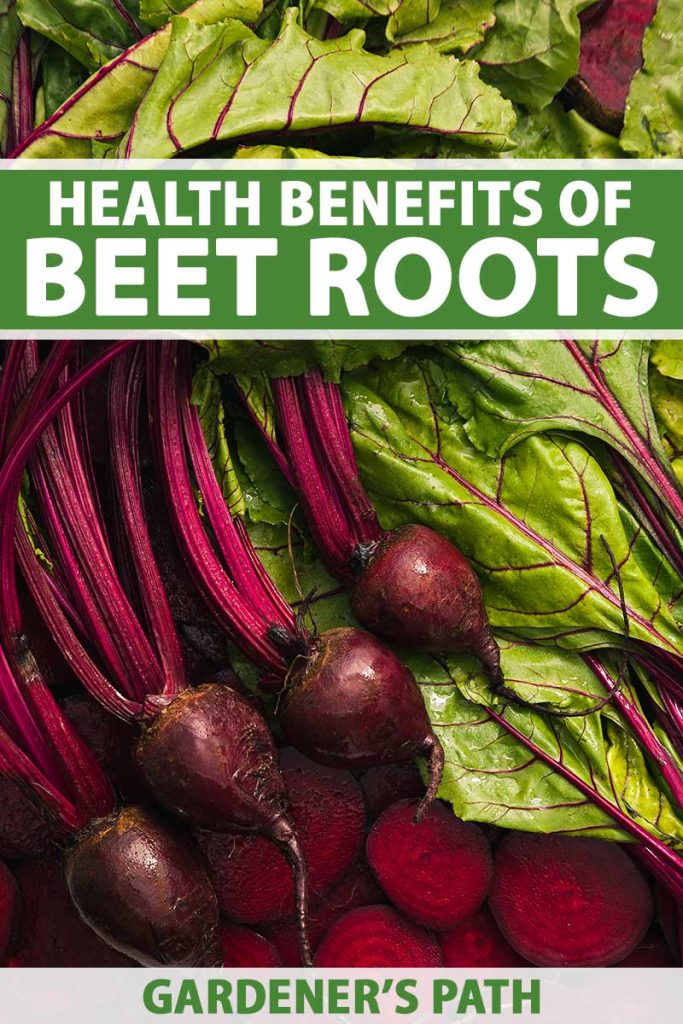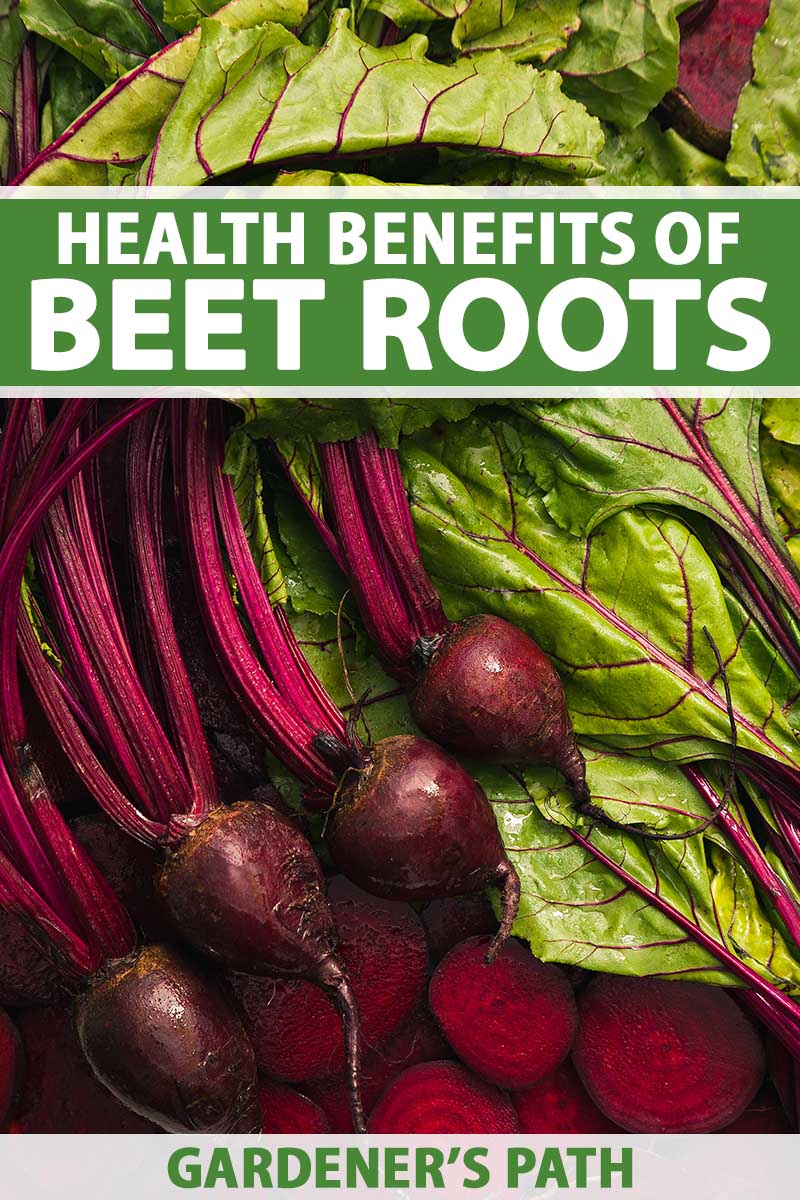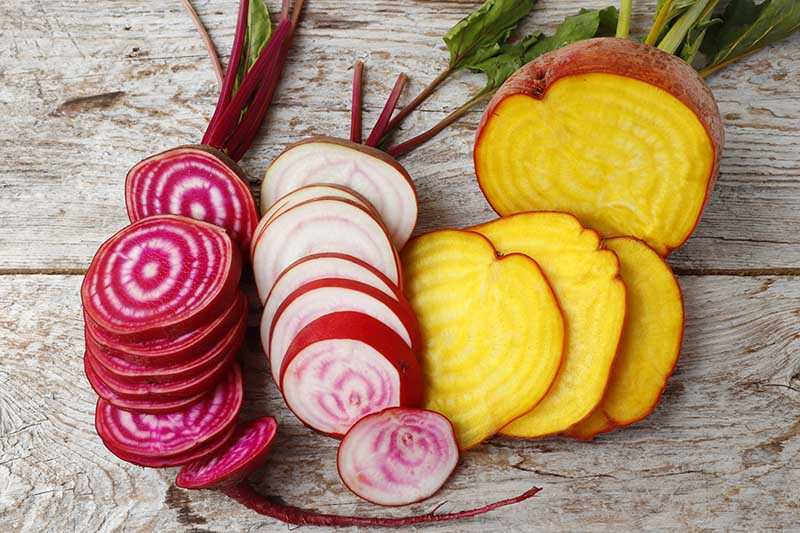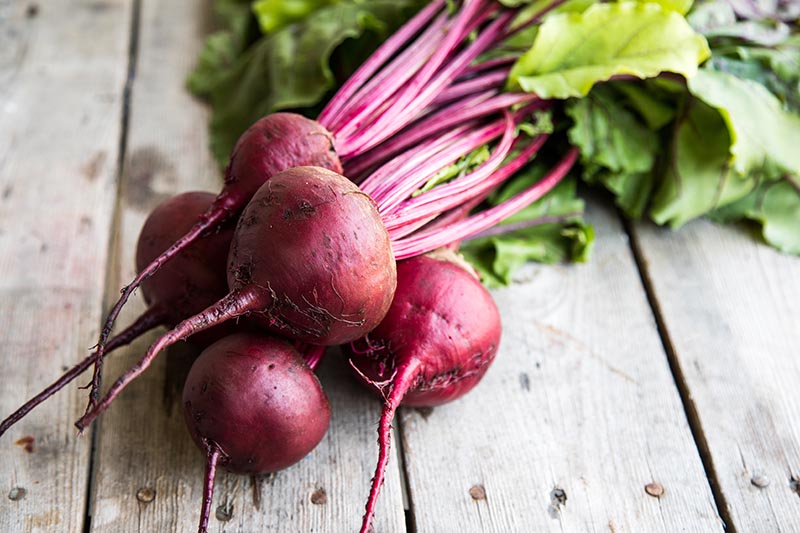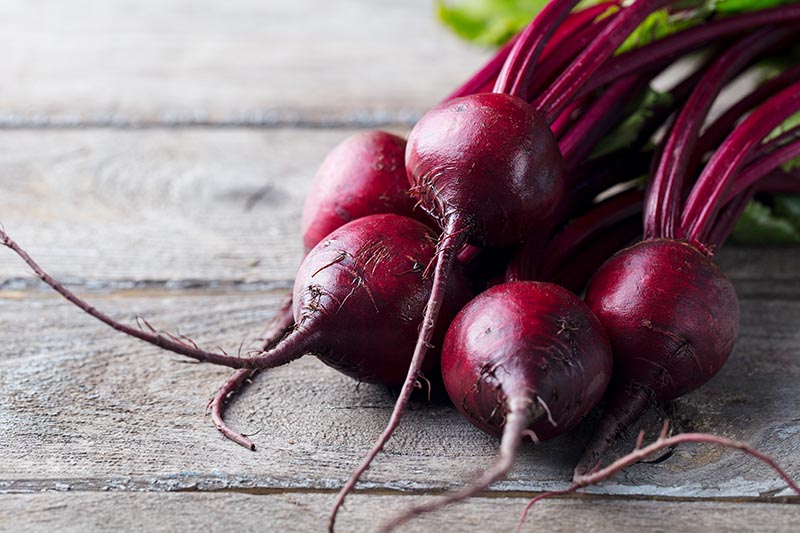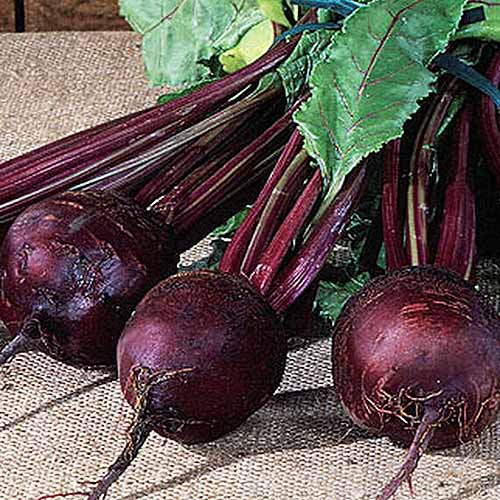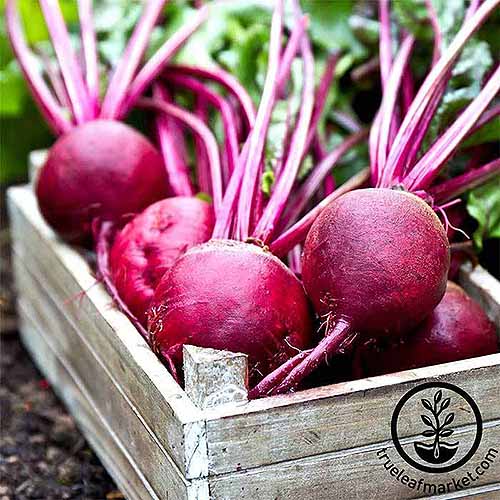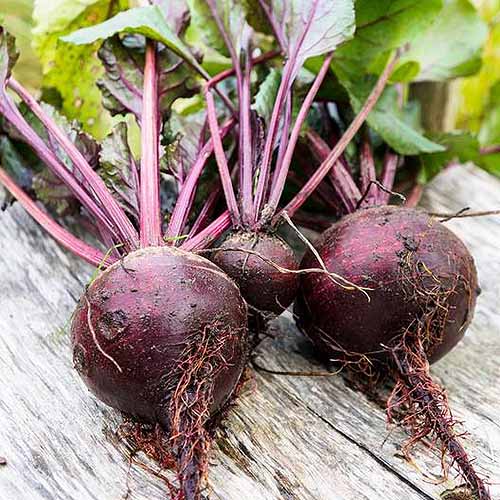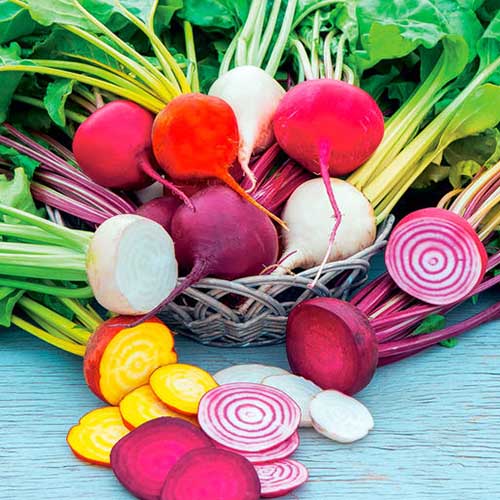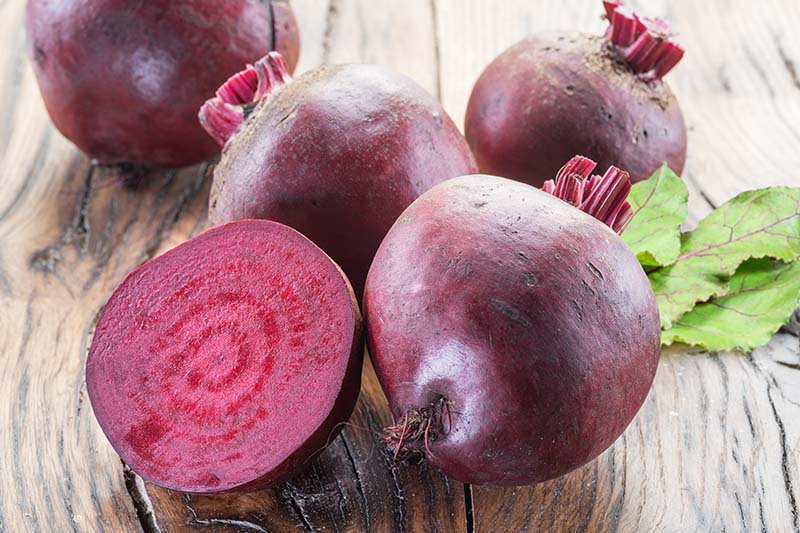Surprising, right? Even today, research shows that your homegrown beets really can bring a bounty of health benefits! We link to vendors to help you find relevant products. If you buy from one of our links, we may earn a commission.
Beet Background
In Europe, western Asia, and northern Africa where they originate – and long before they were first consumed as a root vegetable – beets’ ancient ancestors were harvested for use in herbal medicine.
Beets are used medicinally to this day to nourish and restore the body in traditional Chinese medicine and Ayurveda. But for the most part, beets are grown nowadays for food – to be roasted, canned, or pickled – or to be processed into sugar, in the case of sugar beets. This vibrant root veggie brings an earthy flavor to any dish that you add it to. It is simple to grow and thrives in full sunlight, and it can be harvested early or left to mature for a larger root. While the purple or red bulbous root is probably the most familiar form of this vegetable, it also comes in gold, orange, white, pink, and multicolored varieties, and the leaves are also edible and quite nutritious. Read more about harvesting and enjoying the greens in this article. Here, we will focus on the nutritional benefits of the roots.
Nutritional Value
The roots are high in several nutrients, and also low in calories. A half-cup serving has 34 calories, 1.5 grams of fiber, and virtually no fat. For the needs of a healthy adult, this serving will meet over 100 percent of the daily value for vitamin K and 32 percent of the recommended daily intake of folate (vitamin B9).
Vitamin K helps with blood clotting, but intake should be limited for those taking blood-clotting medications. Talk to your doctor if you have questions surrounding this. The boost of folate helps your body to make DNA. Folate is also an important component of cell division, which is necessary for growth. A full cup of roasted fresh beets also offers 9 percent of the daily value for vitamin C and 7 percent of the daily value of iron. While these amounts do not meet the 10 percent minimum requirement to be considered good sources of these nutrients, they do contribute to your total intake. Vitamin C and iron pair well, as the vitamin C helps your body to better absorb the iron. Note that just because granulated beet sugar comes from a vegetable, this doesn’t make it any healthier. In its refined form, sucrose from beets is still calorically and nutritionally identical to cane sugar. Unrefined, or in the form of a sweet syrup or beet molasses, you will find some essential vitamins and minerals. But keep in mind that minimal processed sugar intake is recommended as part of a healthy diet.
Health Benefits
The vegetable is rich in nitrates, nutrients that have a bad reputation when they appear in processed meats like bacon. In these meats, they act as a preservative, in the form of sodium nitrate. These nitrates are not harmful themselves, but can become so when cooked with high-heat methods like we typically do with bacon.
In vegetables, with lower heat cooking methods, nitrates can actually help to improve heart function and regulate blood pressure – particularly high blood pressure. Research has also shown that nitrates may help to maintain brain health and support cognitive function in aging populations. Further study is required in this area. Additionally, the betalains that give the root its red or golden color (and which also impart that earthy taste) are responsible for some of their most potent health benefits – including anti-inflammatory and antioxidant properties. These may help to reduce the risk of chronic heart disease, and also work to combat cell-damaging free-radicals. Now, you probably can’t cure heart disease, cancer, or inflammatory conditions by eating them. The scientific evidence thus far does not suggest this. But consuming beets regularly could help to prevent some of these health issues – along with providing you with healthful nutrients. Keep in mind that most research is conducted on fresh cooked beets or sometimes juice, not those that were canned or pickled. Beets pickled with vinegar tend to lose some nutrients, while lacto-fermented beets actually gain beneficial probiotic bacteria that can support gut health. The nutrition content and health benefits may vary slightly based on how you prepare your beets. Regardless, they will still retain some of their healthful goodness!
Recommended Cultivars
Detroit Dark Red
One of my favorite heirloom cultivars is the popular ‘Detroit Dark Red’ for its deep red flesh and versatility in the kitchen.
‘Detroit Dark Red’ Seeds are available from Burpee.
Ruby Queen
If pickling or canning is your goal, look for ‘Ruby Queen.’ This heirloom cultivar is perfect for these uses, and it will retain its beautiful color even after processing.
‘Ruby Queen’ Seeds are available from True Leaf Market.
Lutz Green Leaf
If your aim is to eat both the roots and the greens, ‘Lutz Green Leaf’ may be a better choice. Its leaves are similar to swiss chard and they produce nearly double the amount of leaves as other varieties.
‘Lutz Green Leaf’ Seeds for this type are available from Eden Brothers.
Rainbow Mix
If you’re looking for a little bit of variety in one packet of seeds, try this rainbow mix, also from Eden Brothers.
Rainbow Mix It includes several different cultivars – ‘Detroit Dark Red,’ ‘Golden Detroit,’ ‘White Albino,’ and ‘Chioggia’ – so you can try them all! To learn more about the different varieties check out our roundup here.
Turn Up the Beet
Whichever variety you choose to grow in the garden, or whatever you pick up from the farmers market, you will be able to find multiple uses for these little gems. Get started with this quick oven-roasted recipe from our sister site Foodal, and then get creative on your own from there!
Increasing your beet intake will make your taste buds happy, and consuming these nutritious root vegetables can potentially bring some health benefits as well. Are you growing these delicious roots? What is your favorite way to eat them? Let us know in the comments below! And for more information about growing beets in your garden, check out these guides next:
How to Plant and Grow Beets How to Grow Beets in Containers How to Harvest Beets
© Ask the Experts, LLC. ALL RIGHTS RESERVED. See our TOS for more details. Product photos via Burpee, Eden Brothers, and True Leaf Market. Uncredited photos: Shutterstock. With additional writing and editing by Allison Sidhu. The contents of this article have been reviewed and verified by a registered dietitian for informational purposes only. This article should not be construed as personalized or professional medical advice. Gardener’s Path and Ask the Experts, LLC assume no liability for the use or misuse of the material presented above. Always consult with a medical professional before changing your diet, or using supplements or manufactured or natural medications.
